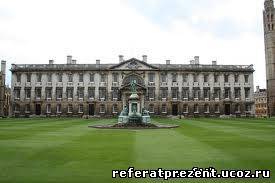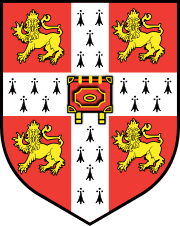University of Cambridge



The university grew out of an association of scholars in the city of Cambridge that was formed, early records suggest, in 1209 by scholars leaving Oxford after a dispute with townsfolk. The two "ancient universities" have many common features and are often jointly referred to as Oxbridge. In addition to cultural and practical associations as a historic part of British society, the two universities have a long history of rivalry with each other.
Academically, Cambridge ranks as one of the top universities in the world: it is ranked first in the world in the 2010 QS World University Rankings and fifth in the world (and first in Europe) in the 2010 Academic Ranking of World Universities. Cambridge regularly contends with Oxford for first place in UK league tables. Affiliates of the University have won a total of 88 Nobel Prizes as of October 4, 2010, the second most of any academic institution, behind Columbia University - the most recent one being Robert G. Edwards for the prize in physiology or medicine.
Cambridge is a member of the Russell Group of research-led British universities, the Coimbra Group, the League of European Research Universities and the International Alliance of Research Universities. It forms part of the 'Golden Triangle' of British universities and is a constituent of the 'G5'.
Cambridge's colleges were originally an incidental feature of the system. No college is as old as the university itself. The colleges were endowed fellowships of scholars. There were also institutions without endowments, called hostels. The hostels were gradually absorbed by the colleges over the centuries, but they have left some indicators of their time, such as the name of Garret Hostel Lane.
Hugh Balsham, Bishop of Ely, founded Peterhouse in 1284, Cambridge's first college. Many colleges were founded during the fourteenth and fifteenth centuries, but colleges continued to be established throughout the centuries to modern times, although there was a gap of 204 years between the founding of Sidney Sussex in 1596 and Downing in 1800. The most recently established college is Robinson, built in the late 1970s. However, Homerton College only achieved full university college status in March 2010, making it the newest full college (it was previously an "Approved Society" affiliated with the university).
In medieval times, colleges were founded so that their students would pray for the souls of the founders. For that reason they were often associated with chapels or abbeys. A change in the colleges’ focus occurred in 1536 with the Dissolution of the Monasteries. King Henry VIII ordered the university to disband its Faculty of Canon Law and to stop teaching "scholastic philosophy". In response, colleges changed their curricula away from canon law and towards the classics, the Bible, and mathematics.
As Cambridge moved away from Canon Law so too did it move away from Catholicism. As early as the 1520s, the continental rumblings of Lutheranism and what was to become more broadly known as the Protestant Reformation were making their presence felt in the intellectual discourse of the university. Among the intellectuals involved was the theologically influential Thomas Cranmer, later to become Archbishop of Canterbury. As it became convenient to Henry VIII in the 1530s, the King looked to Cranmer and others (within and without Cambridge) to craft a new religious path that was different from Catholicism yet also different from what Martin Luther had in mind.
Nearly a century later, the university was at the centre of another Christian schism. Many nobles, intellectuals and even common folk saw the ways of the Church of England as being all too similar to the Catholic Church and moreover that it was used by the crown to usurp the rightful powers of the counties. East Anglia was the centre of what became the Puritan movement and at Cambridge, it was particularly strong at Emmanuel, St. Catherine's Hall, Sidney Sussex and Christ's College.[10] They produced many "non-conformist" graduates who greatly influenced, by social position or pulpit, the approximately 20,000 Puritans who left for New England and especially the Massachusetts Bay Colony during the Great Migration decade of the 1630s. Oliver Cromwell, Parliamentary commander during the Civil War and head of the English Commonwealth (1649–1660), attended Sidney Sussex.





